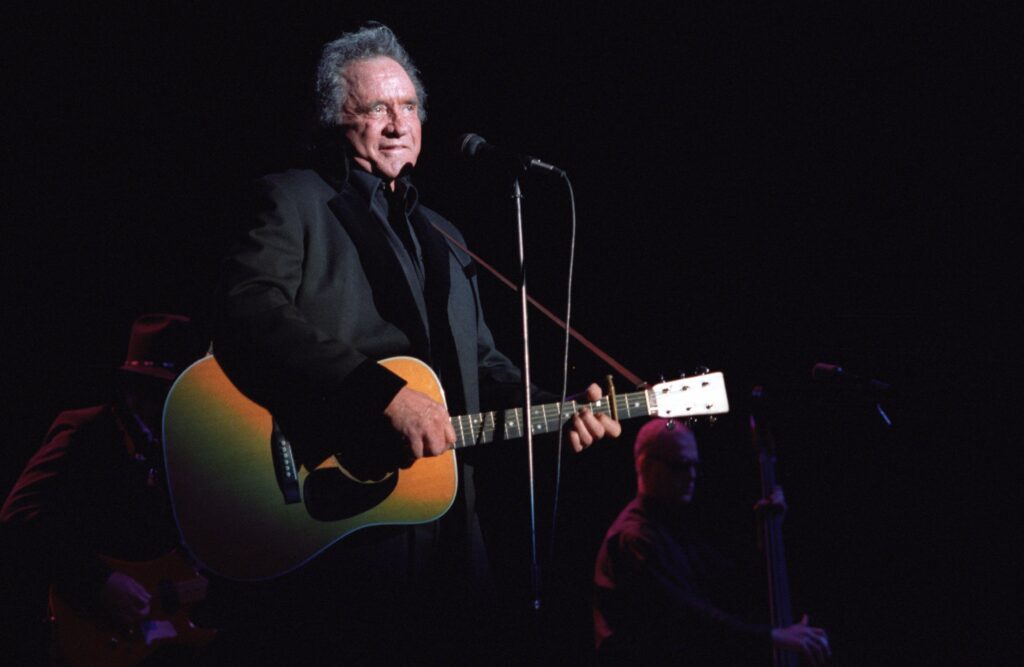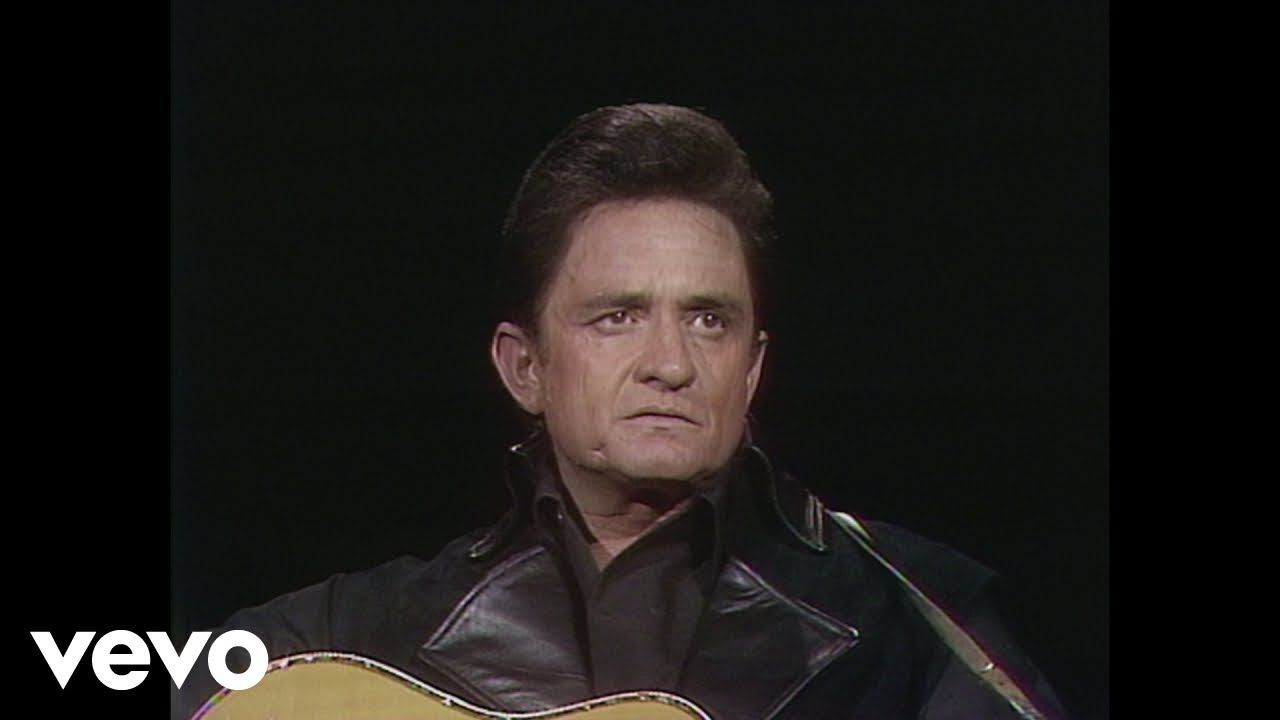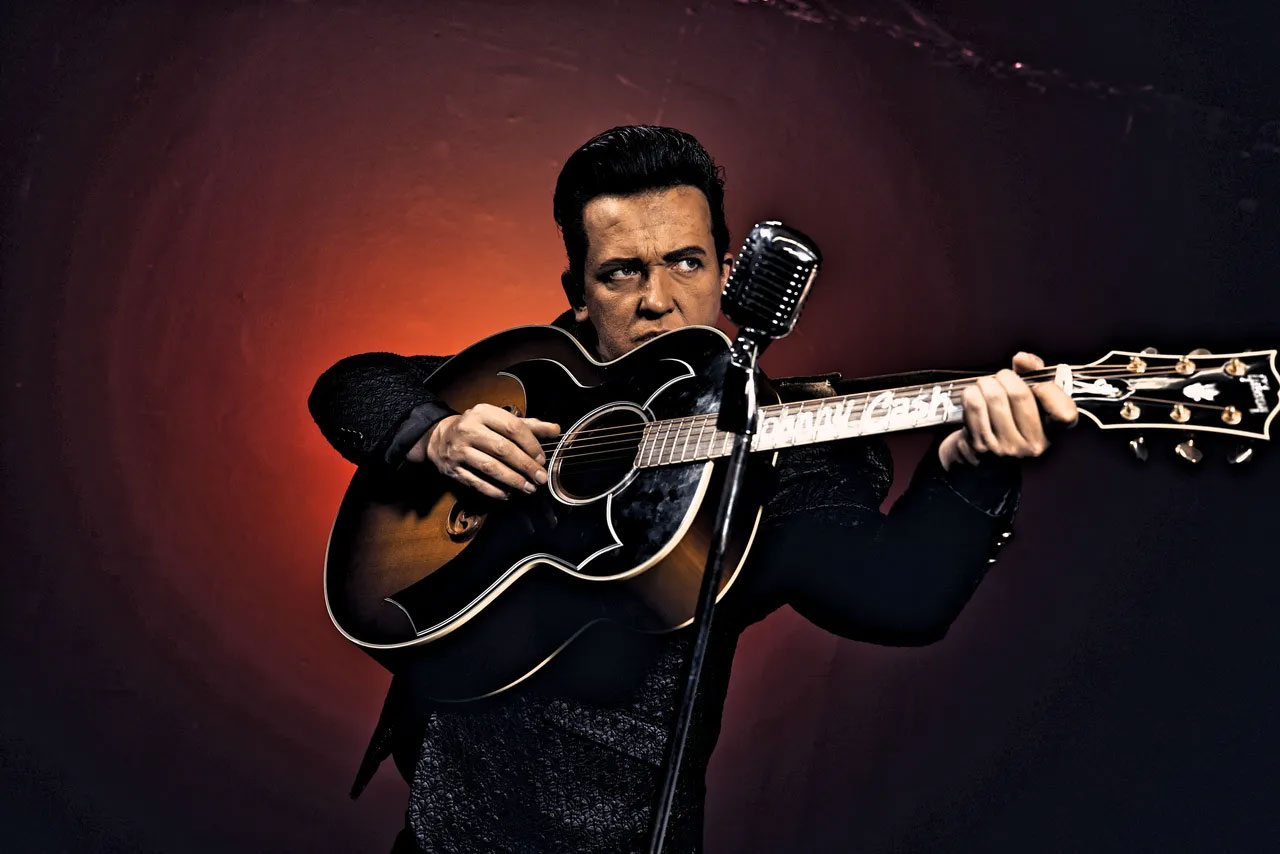
Johnny Cash remains an enduring symbol of American music, a legendary figure whose deep baritone and stark, resonant storytelling have left an indelible mark on music and culture. From his early days in Arkansas to his transformative concerts and bold collaborations, Cash’s journey is a compelling saga of creativity, rebellion, and redemption.
Early Life and Musical Beginnings
Born on February 26, 1932, in Kingsland, Arkansas, Johnny Cash’s music was deeply influenced by a mix of sounds: country, rock, blues, and gospel.

This eclectic influence would become a hallmark of his style, making him one of the most versatile and best-selling music artists of all time, with over 90 million records sold globally. His songs often delved into the heart of love, heartbreak, and social justice, capturing the essence of human emotion and the struggles of the common man.
From Morse Code to Music Charts
Before his iconic music career took off, Johnny Cash served in the United States Air Force as a Morse code operator. Stationed in Germany from 1950 to 1954, Cash’s military service was a pivotal period, providing him the discipline and focus necessary to pursue his musical dreams. His first hit single, “Cry! Cry! Cry!,” was released in 1955, marking the beginning of a series of successful songs like “I Walk the Line” and “Folsom Prison Blues.”
The Million Dollar Quartet
One of the most storied moments in rock and roll history occurred somewhat serendipitously when Cash, during a visit to Sun Studio to watch Carl Perkins, found himself part of an impromptu recording session with Elvis Presley, Jerry Lee Lewis, and Perkins himself. This session, known as “The Million Dollar Quartet,” fused the essence of rock, gospel, and country music, showcasing the raw musical energies of these young stars.
Advocacy Behind Bars: The Folsom Prison Concert
Perhaps no other event underscores Cash’s deep connection to themes of justice and reform as his 1965 concert at Folsom Prison. This live recording session highlighted his commitment to social issues, capturing the gritty reality of life behind bars and resonating with calls for prison reform. His performance not only revitalized his career but also amplified his role as an advocate for the marginalized, a theme that would recur throughout his life.
The Johnny Cash Show
From 1969 to 1971, “The Johnny Cash Show” brought the singer’s distinctive style and voice to a broader audience, featuring a diverse lineup of guests ranging from Bob Dylan to Louis Armstrong. It was here that Cash solidified his presence in American households with his trademark greeting, “Hello, I’m Johnny Cash,” a phrase that would become synonymous with his identity.
Johnny Cash on Screen

Cash’s foray into acting saw him portraying a dark character on an episode of “Columbo,” where he played a gospel singer turned murderer. This role highlighted his versatility and ability to captivate audiences not just through song but also through a compelling portrayal on screen.
Collaborations and Cover Songs
In his later years, Johnny Cash embraced collaboration with contemporary artists, including a notable recording with U2 in 1993, where he lent his voice to “The Wanderer.” He also covered songs by Nine Inch Nails and Depeche Mode, bringing a new depth to these tracks with his brooding tones and introspective interpretation, thereby introducing his work to a new generation of listeners.
Legacy of the Man in Black
Johnny Cash’s choice to dress in black was more than a style choice; it was a symbol of his solidarity with the less fortunate and a statement against injustice. His music, style, and advocacy continue to inspire artists and activists, resonating with themes of redemption and change.
As we look back on the storied life of Johnny Cash, his legacy is not just in the records he sold or the stages he filled but in the powerful stories he told through his music and the lives he touched. Johnny Cash was more than just a musician; he was a storyteller, a rebel, a humanitarian—and above all, the Man in Black.
